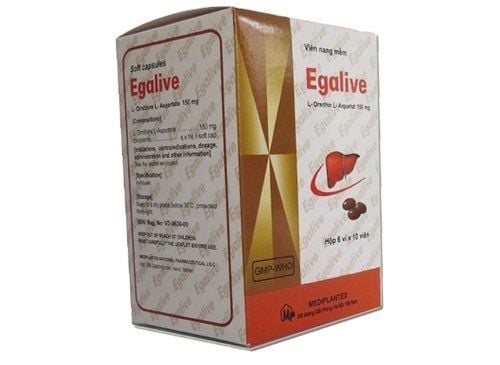This is an automatically translated article.
The article was professionally consulted with Master, Doctor Nguyen Thi Nhat - Infectious Doctor - Department of Medical Examination & Internal Medicine - Vinmec Hai Phong International General Hospital.Hepatitis C is a liver infection and serious liver damage. It is an infectious disease that is transmitted through blood and body fluids. Therefore, there are many risk factors for hepatitis C such as mother-to-child transmission, injection, blood transfusion,...
1. Learn about hepatitis C
Hepatitis C is a liver infection and causes serious liver damage. The hepatitis C virus is transmitted through the blood or bodily fluids of an infected person. Symptoms of hepatitis C are often not overwhelming and difficult to detect. The stages of hepatitis C include:Incubation period: this is the time from first exposure to onset of illness, usually 14 to 80 days, with an average of 45 days. Acute hepatitis C: lasts for the first 6 months after the virus enters the body. Then some infected people clear the virus on their own. Chronic hepatitis C: most people with acute hepatitis C will progress to the chronic stage in about 85%. Chronic hepatitis C can lead to serious health problems such as cirrhosis or liver cancer. Cirrhosis: chronic inflammation of the liver will destroy healthy liver cells and replace them with scar tissue, and the risk is increased for people who drink alcohol and have HIV. Liver cancer: cirrhosis is for a higher chance of liver cancer. Currently, there is no vaccine for hepatitis C, but if detected at an early stage, it can be completely cured. Therefore, people with risk factors for hepatitis C need regular testing and effective preventive measures.
2. Risk factors for hepatitis C infection
There are many risk factors for hepatitis C infection, with many different ways and occupations. The 10 risk factors for hepatitis C infection, categorized by moderate to high risk, are as follows:2.1 High risk factors for hepatitis C infection Sharing drug paraphernalia : anything related to inject drugs from syringes, needles to the garo can all contain a small amount of blood that can transmit hepatitis C. The straws for smoking and inhalation can also be stained with blood due to nosebleeds, cracked lips, etc. .. Sharing tattoo or piercing equipment: items and ink can spread infected blood. Blood transfusion: unscreened blood products Non-sterile medical equipment: such as dialysis machines, non-sterile dental equipment

3. Subjects susceptible to hepatitis C
People who are most at risk for hepatitis C are:Injecting drugs: sharing needles is one of the most common ways to get hepatitis C. Cocaine smokers: people who share straws or other devices to inhale cocaine will increase the risk of disease. Workers who have frequent contact with blood or needles: nurses, doctors, and people in laboratories get hepatitis C more often than others. They are more likely to come into contact with blood and accidentally get contaminated with needles. Patients requiring dialysis or blood transfusion: If dialysis equipment is not properly cleaned or blood products are not screened for hepatitis C virus infection, it will lead to patients undergoing dialysis or blood transfusion infected with hepatitis C. Promiscuous sexual activity: People who have many sexual partners or have sex with people who have STIs, especially HIV, are more likely to get hepatitis C. Having a spouse or caregiver with hepatitis C: close daily contact with an infected person also increases the risk of hepatitis C. Tattoos, piercings: equipment and items can be contaminated with hepatitis C virus. Therefore, to ensure safety, it is necessary to sterilize all tools and equipment including tattoo ink. Babies born to mothers who have hepatitis C: the mother can pass the infection to her baby, but not all cases happen. If the mother is infected with hepatitis C or HIV, there is a high chance that the baby will also be infected. Prisoners: people who have been or are in prison are more likely to get hepatitis C because of frequent sharing of personal items.

Vinmec International General Hospital is now developing Hepatobiliary Screening packages, which help detect hepatitis virus at an early stage even when there are no symptoms. When registering for this screening package, patients will be assessed for liver function through testing, screening for liver cancer as well as in-depth analysis of parameters to evaluate hepatobiliary function through testing....
The The examination is always performed by a team of doctors and experts with many years of experience, helping to check and treat the patient with the best results. Besides, the system of facilities at the hospital always meets international standards, helping patients feel comfortable during the examination.
Please dial HOTLINE for more information or register for an appointment HERE. Download MyVinmec app to make appointments faster and to manage your bookings easily.














